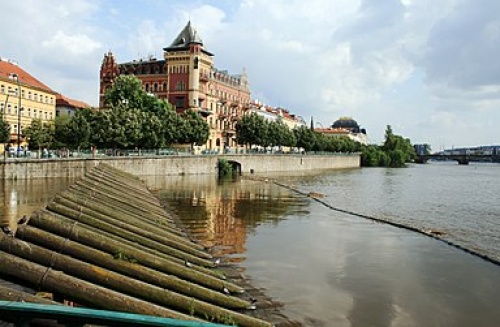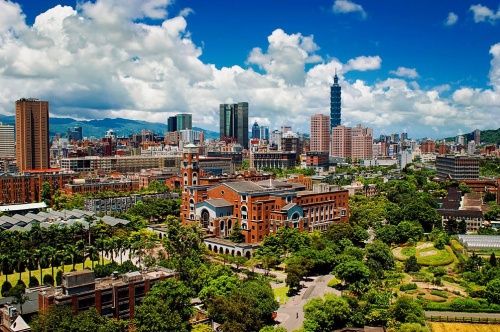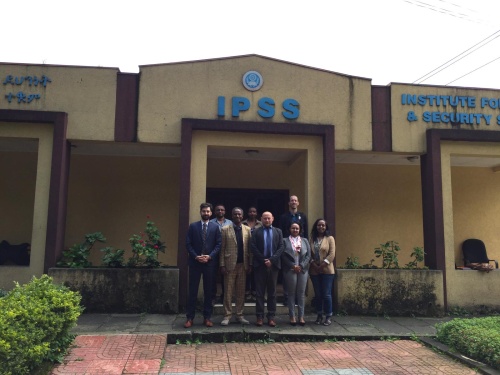Detailed Information
Detailed Information
Why study geopolitics in Prague?
- The GPS is a career-focused program that emphasizes hands-on experience. We lead students to acquire a wide scope of knowledge and practical skills to prepare you for careers in an international environment.
- Prague is due to its geographic location and history the right place to study geopolitics.
- Prague is a favourite destination amongst international students for its cosmopolitan environment and great job opportunities both during and after your studies.
- Charles University belongs to the TOP 1% of the world's best ranking universities.
- Charles University has partnerships with top ranking universities around the world.
- Courses are taught by foremost academics in geopolitics as well as practitioners including the Czech ambassador to NATO Jakub Landovský or the Deputy Minister of Defence Tomáš Kopečný.
- Where else could you have the opportunity to debate international intervention in a class with students deployed in Afghanistan or Iraq, discuss situation in failed states with lecturers who travel to the most dangerous places in the world, and brainstorm security in Africa with General Barlow who fought against the worst insurgents in Sierra Leone?
- Collaboration with foremost experts in research and as guest lecturers including Stig Jarle Hansen, Nina Caspersen, Alexis Heraclides, Aleksandar Pavkovic, Eeben Barlow, Daniel Bach, or Matt Qvortrup.
- Students are encouraged to participate on the research activities of the GPS staff including the organization of a conference and a summer school
- As the essence of geopolitics is the study of interstate conflict in geographic perspective, there is no better place to study Geopolitics than Prague.

Highly focused on employability – outside speakers will provide networking opportunities. The programme includes discussions with legendary practitioners and decision-makers outside the academy. The class offers an advanced grounding in geopolitics and security while allowing you to specialize in issues and themes of interest to you. There is a strong emphasis on skills development especially communication. Selected students might apply for the Double Degree allowing them to spend a year in Taipei to enhance their knowledge at the prestigious National Taiwan University. Students will receive diplomas from both institutions.

The global nature of the GPS programme provides an incentive for further foreign stays. The programme was so far studied by citizens of more than 40 countries from all around the globe. Interested students can take advantage of a wide selection of international academic exchange programmes arranged with renowned universities in the EU, the UK, the United States, Canada, Latin America, Asia, and Australia. There is also an increasing number of research institutions in Africa cooperating with the GPS programme.

A typical week for a GPS student might look as follows: class-time divided between five lectures and two seminars. The number of classes selected is to a high degree up to the student so the workload is flexible according to the selection made by a student for the given semester. But, just as importantly, free time for exercising private interests such as sports, culture, discussion and entertainment, which Prague offers in abundance. It also allows the students to work besides their study. A cosmopolitan and diverse city with more than 8,000 foreign students at Charles University alone, Prague certainly provides students with the ability to live actively between “gown and town”.
Examples of topics covered in GPS programme
|
|
Cost considerations
Calculations should consider the living costs for students in Prague, which are by 43% lower than in London or Paris and by 28% lower than in Berlin or Vienna. In addition, GPS students can take advantage of a part-time job close to their professional specialisation since Prague is a cosmopolitan city with the lowest unemployment rate in Europe and eager to employ bright-minded English-speakers with international experience.
Options of funding:
- FSV UK scholarships and tuition fee reductions
- The International Visegrad Fund (IVF) is a joint initiative of the governments of the four Visegrad Group countries (Slovakia, Czechia, Poland, and Hungary). It offers scholarships for study abroad, both to students from within the Visegrad group, and to neighbouring countries like Belarus and Ukraine. Submission deadline is January 31, scholarship applicants can request a preliminary confirmation of acceptance at the International Office of FSV UK.
- The Fulbright Commission provides U.S. citizens with the opportunity to study, teach, or conduct research in Czechia. You can find info about the grants on this link.
- Studyin.cz provides essential information about the higher education system, study opportunities and scholarships, as well as about student's life in the Czechia.
- It is possible to find more scholarships in ScholarshipPortal and in CET Academic Programs.
Admission Requirements
- Bachelor degree
- English language proficiency (both written and oral)
Applicants to the GPS Programme may come from a variety of undergraduate backgrounds. It is not necessary to have studied political science, international relations, or geopolitics. Admission may be granted also to students whose previous studies were in the humanities, economy, law or even technical or natural sciences. Although a background in political science and related sub-disciplines is not formally required for admission, it is an advantage for GPS applicants to have an aptitude for political science.
All students must have a good command of the English language in order to successfully complete all the course requirements, including the ability to discuss specialised topics. Our tutors will not be concerned only with what students know but they will also care about the clarity of their thinking, the capacity of explaining ideas in the public, how well you are able to work in teams and to absorb or expand new knowledge in the social sciences. They will seek evidence of students’ interest in social and political issues and their ability to discuss them critically. If you like reading Foreign Affairs or watching Fareed Zakaria's GPS and the HARDtalk on BBC, you are a prospective programme applicant. If you have not tried yet, please do so and test your aptitude to the social phenomena of this study.
Follow GPS:
On FacebookFollow GPS:
On TwitterTestimonials
I am currently the Lead Problem Sourcing Analyst for the U.S. Department of Defense program called "Hacking for Defense". I use the knowledge learned in my GPS studies to not only quickly source problems from our DoD participants, but to then curate that problem down to its root cause. Hacking for Defense® is a university course sponsored by the Department of Defense that teaches students to work with the Defense and Intelligence Communities to rapidly address the nation’s emerging threats and security challenges.
Claire Bouchard
Design Strategist Senior Consultant at Deloitte and a former US student of the Geopolitical Studies programme
At first, my main motivation in applying to the GPS program was to live abroad for a while. Of course, ensuring quality education was there as well, but experiencing the world was central. Being an interesting program, form a great university, in a beautiful city, GPS looked like the perfect match for that. During my stay at GPS this motive was fulfilled, but it went beyond this ‘objective’. Fast-forward four years, I am a PhD student and research assistant whose area of focus is resting upon the foundations built at the GPS program. Having a rich, detailed and interestingly interwoven program, GPS allowed me to acquire the basics needed to adequately tackle geopolitical issues, while having the opportunity, firstly to identify and then explore in-depth areas I found most interesting. Professors were open to consult, help or provide their advice every step of the way, which did not end when I graduated. Even today, I am still in contact with many of my professors, either to consult or to collaborate, for which I am grateful. Perhaps I could have found another place to experience the world, but I am doubtful that I could have gained this kind of an experience.
Mihajlo Kopanja
Research assistant at the Institute of International Politics and Economics, Belgrade, Serbia, and a former student of the Geopolitical Studies programme
Studying at the GPS programme at Charles University in Prague has been a wonderful privilege and I deeply encourage everyone to apply. The proposal to combine geography with political science in the field of geopolitics caught my attention from the beginning and the result is an amazing list of courses, all of which I have enjoyed to the fullest. The programme provides a solid theoretical background as well as research methods allowing the student to undertake meaningful geopolitical analysis of the most varied regions and international topics. This is accomplished thanks to professors who always inspire the students to think, propose and debate, skills which are in very much need today. It all takes place in a splendid environment, at a traditional and prestigious university, in one of the most magnificent cities you will find. Four years after my graduation I still look back with joy at those days at GPS programme. I recommend it to all those interested in understanding our world today and I look forward to visiting once again, this time as a researcher, on occasion of future seminars and conferences on geopolitics.
Matías Iglesias
Assistant Professor at the University of Palermo, Argentina, and a former student of the Geopolitical Studies programme
My experience from the studies of the GPS programme is mostly positive. Thanks to the availability of experts on the most of the world regions, I was able to receive important and interesting information about ongoing processes all over the globe while receiving theoretical background which aided me with proper tools to analyse any given situation from the geopolitical perspective. Another advantage of the programme is in its location on the Charles University, which as a huge institution provides possibility to find an expert opinion on any specialized topic any student would need to help with even outside the Institute of Political Studies. I must recommend this degree to anyone interested in the world around and in knowing how space matters.
Bohumil Doboš
Researcher and lecturer at Charles University, and a former Czech student of the Geopolitical Studies programme





